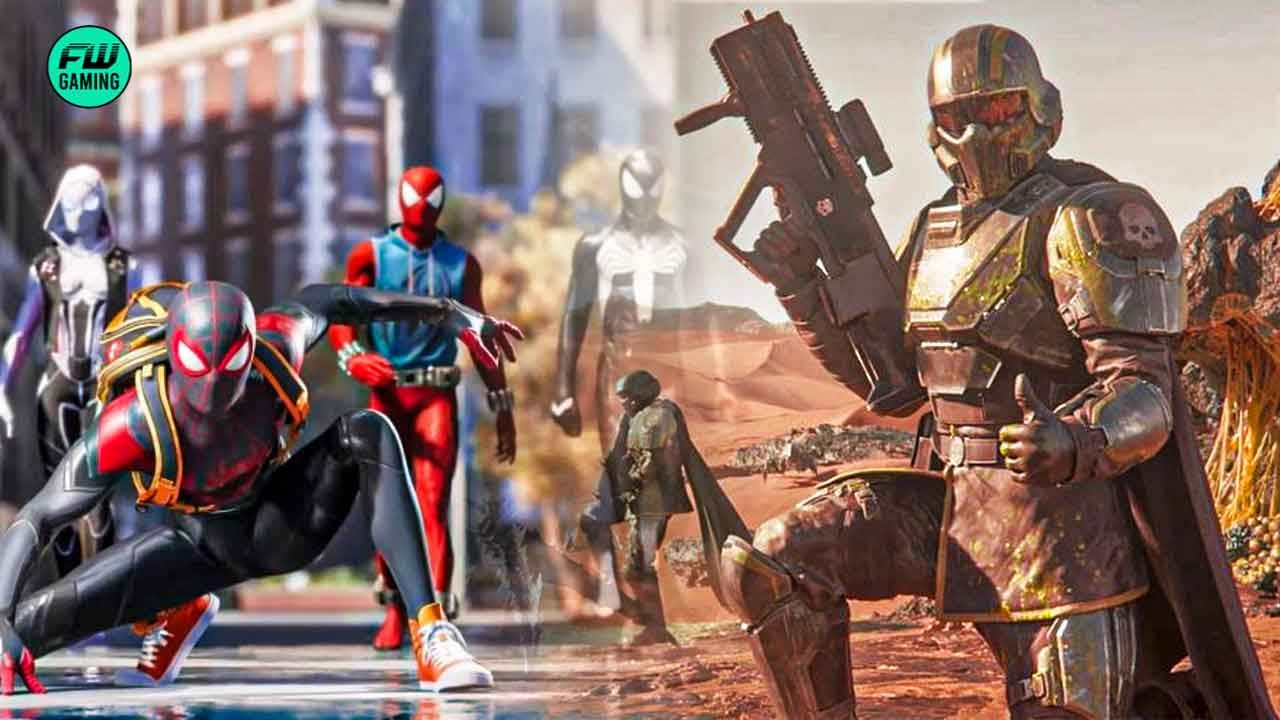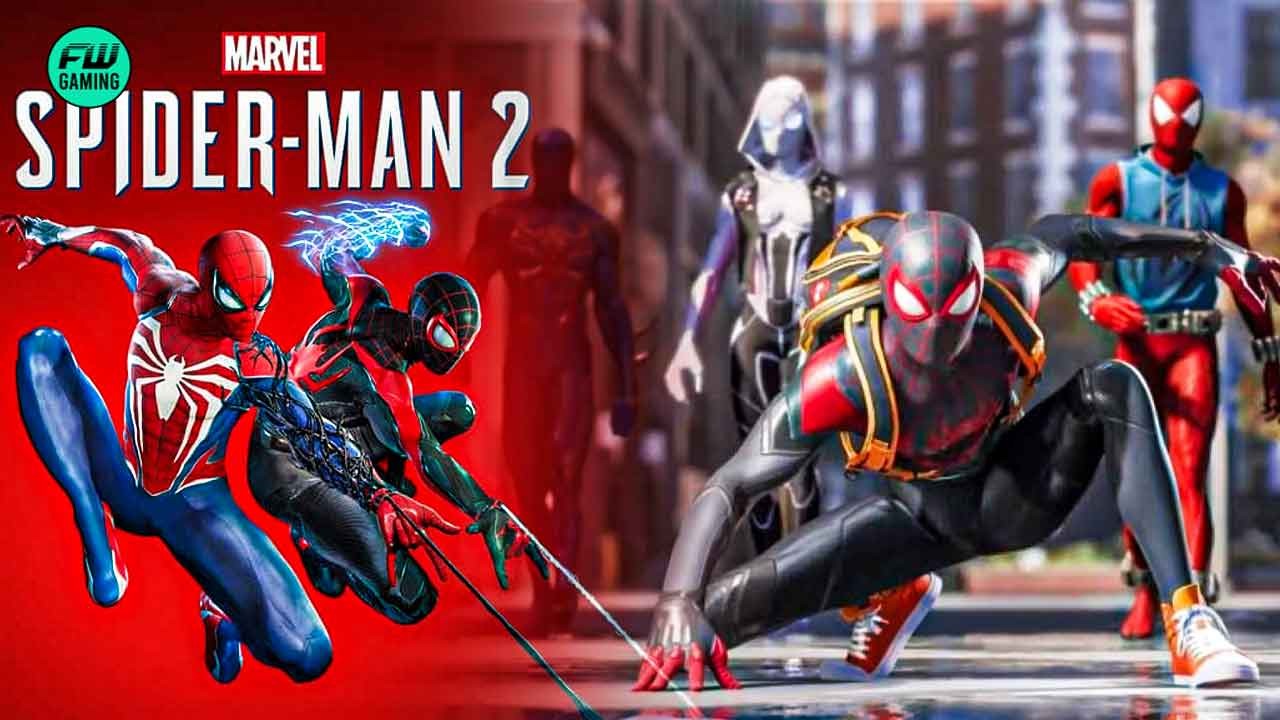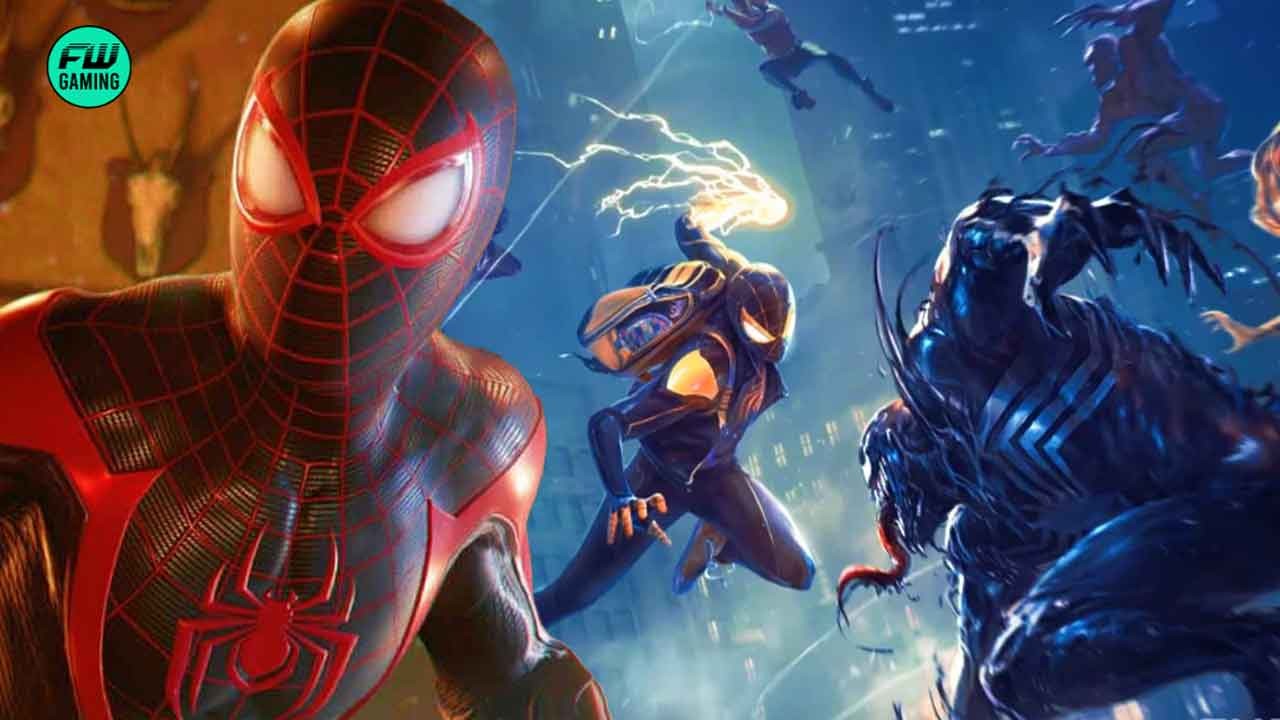Helldivers 2 lost a mighty competitor with the cancellation of Spider-Man: The Great Web. Planned as a live-service multiplayer co-op, the gaming community is completely befuddled as to why the game was axed in the first place.
Recent leaks have given us critical information about the game, fueling the community’s rage at Insomniac’s decision. Along with the trailer, we got access to the entire pitch presentation that detailed some key points about the game, including its revenue model that would’ve shaken things up.
The Great Web Could’ve Been Healthy Competition for Helldivers 2

The Great Web is one of Insomniac’s many canceled projects, revealed during the data breach from last year.
Recently, we got much more information on the game, aside from just its name. There’s a complete pitch presentation for the live-service game, which included a projected number of players, its revenue model, gameplay distribution, enemies that would be included, and more.
One of the most interesting aspects of the presentation are the monetization goals. The company aimed to create monetization choices that “feel FAIR, FUN, and VALUABLE.”
The game would have shunned the pay-to-win model and avoided fragmenting players. It aimed to provide monetized content that would stand out, save players’ time, and introduce more challenges and side story (i.e., a DLC). Essentially, purchases would amount to something valuable, and no gambling would be involved.
The Great Web Could’ve Been Healthy Competition for Helldivers 2

The team seemed to gravitate toward two model choices for the game; the premium standalone model (Overwatch, Rainbow Six Siege) and the F2P model (Apex Legends, Fortnite).
Going F2P, as a live-service game, would have introduced microtransactions. Yes, the two scariest words you could think of—live-service and microtransactions—in the same sentence.
According to the presentation, this meant three types of monetization. Vanity and Customization was one, which includes gears, apartments, suit skins, emotes, trailer, and UI skins.
The second was subscriptions and battle pass, which would give players access to monthly accelerator bundles, and a paid challenge track with thematic rewards.
Finally, the DLC story extension would include additional story and mission quests.
Microtransactions don’t have to be so scary—take a look at Helldivers 2, a premium standalone live-service game.
Warbonds are the game’s battle pass and a means to unlock key gameplay items like weapons and armor types. Medals for advancing it are earned by completing missions or found on planets.
The free warbond in Helldivers 2 offers the majority of in-game items, while the $10 premium warbond adds additional content, including elemental damage versions of existing weapons for people interested in experimenting with the full arsenal.
Players cannot pay to skip tiers or purchase medals for advancing the warbond. Additionally, the free warbond gives you credits to buy the premium warbond at a cheaper price.
With what was said in the presentation, would you have like TGW to adopt that monetization system? Share your thoughts in the comments below!



